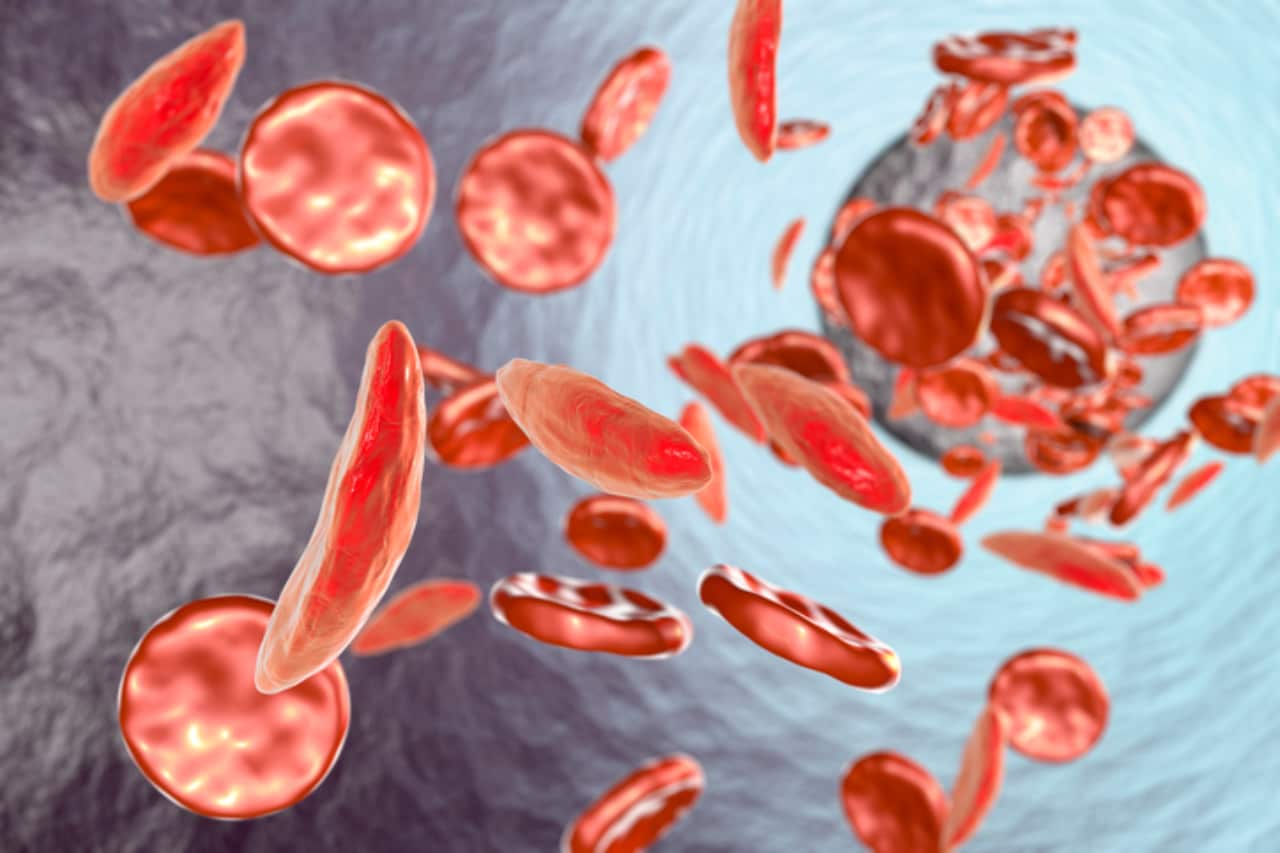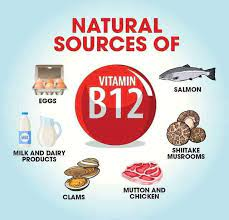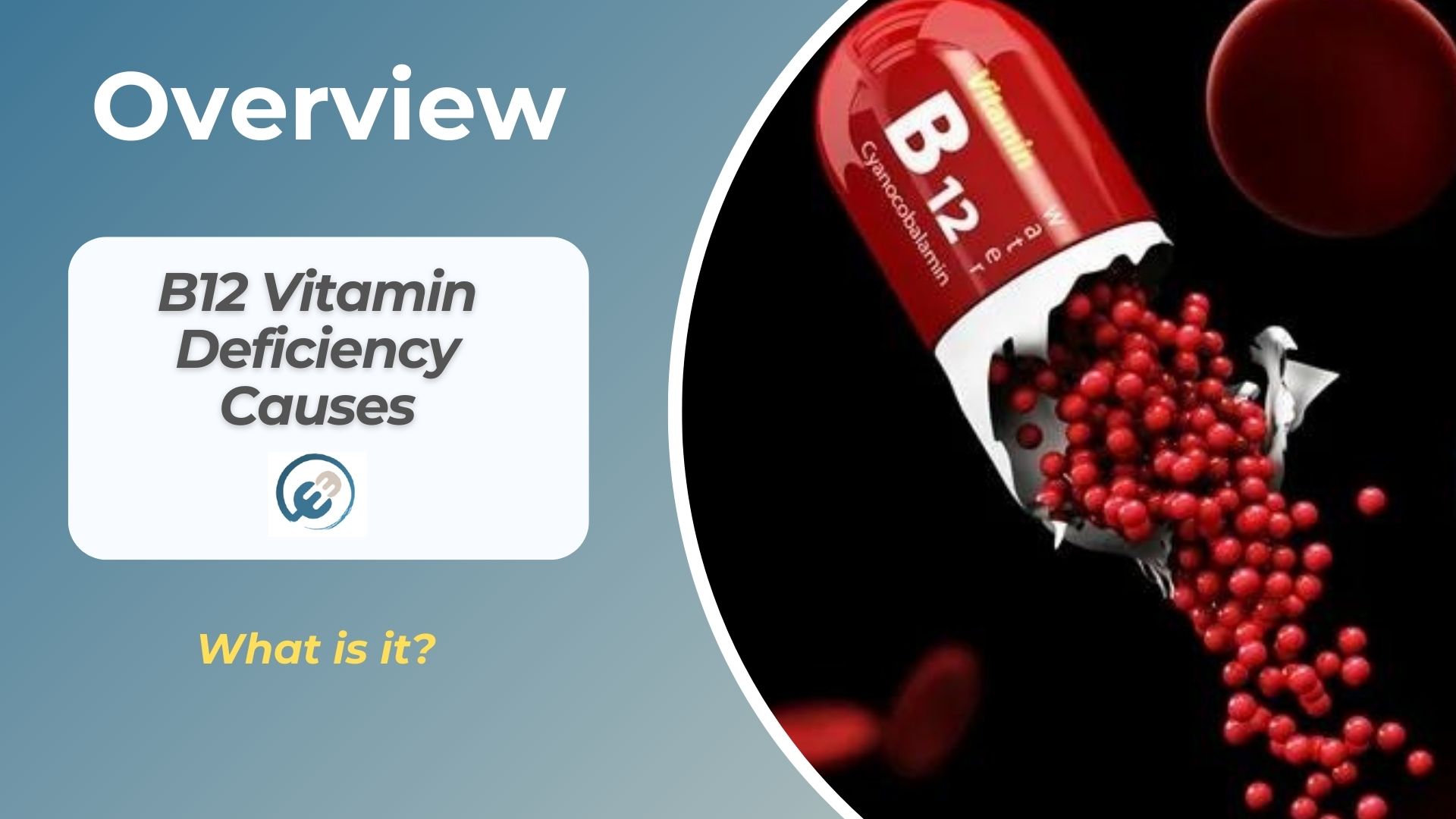What is Vitamin B12 Deficiency? It’s is a water soluble vitamin that is mainly found in animal products.
It is important for the formation of red blood cells, the maintenance of the nervous system, and DNA synthesis.
A deficiency in B12 can lead to a variety of complications including anemia, dry lips, nerve damage, and cognitive decline.
In this blog post we will discuss the causes and complications of B12 deficiency. B12 deficiency is not caused by a lack of it in the diet like other vitamin deficiency.
The body needs B12 to absorb folic acid and produce red blood cells. However, it is only found in animal products, so vegetarians and vegans are at risk for developing a deficiency.
What is B12 Vitamin?

B12 is a water soluble vitamin that is mainly found in animal products. It is important for the formation of red blood cells, the health of the nervous system, and DNA synthesis.
A B12 deficiency can lead to a variety of problems including anemia, nerve damage, and cognitive decline.
Many people also confuse B12 with B complex vitamins. B complex vitamins are a group of water soluble vitamins that includes B12. B complex vitamins are important for energy production, metabolism, and the health of the nervous system.
B12 vitamin is also important in the prevention of some types of cancer. B12 vitamin has been shown to play a role in the prevention of breast, colon, and prostate cancer.
Although there is no accurate research to support the claim, some people believe that B12 vitamin can also help with weight loss. It’s is thought to boost metabolism and energy levels, which may lead to weight loss.
What are the causes?
There are many different causes of B12 vitamin deficiency. The most common cause is a lack of B12 in the diet.
It is found mainly in animal products, so people who don’t eat meat or poultry may be at risk for B12 deficiency.
Here are some of the most common causes of B12 deficiency:
- A vegan diet
- Pernicious anemia
- Intestinal problems
- Medications
- Age
- Stomach surgery
- Gastric bypass surgery.
What is vitamin B-12 deficiency anemia?
Anemia is a condition in which the body does not have enough healthy red blood cells. Red blood cells carry oxygen to the body’s tissues.
There are many different types of anemia, each with its own cause. Vitamin B-12 deficiency anemia is caused by a lack of vitamin B-12 in the diet.
It is found in animal products, such as meat, poultry, eggs, and milk as discussed above.
People who follow a vegan diet are at risk for vitamin B-12 deficiency anemia because they do not eat any animal products.
Vitamin B-12 deficiency anemia can also be caused by a problem with the absorption of vitamin from the intestine. This can be due to a condition called pernicious anemia, which is an autoimmune disorder.
How my body absorb vitamin b12?
Vitamin B-12 is absorbed from the diet by a process called enterohepatic circulation. This process begins in the stomach, where vitamin B-12 is released from food by stomach acid.
Vitamin B-12 then combines with a protein called intrinsic factor and is absorbed into the bloodstream.
Intrinsic factor is a protein produced by the stomach that is necessary for the absorption of vitamin B-12.
Pernicious anemia is an autoimmune disorder that damages the stomach’s cells, which prevents the production of intrinsic factor.
Pathophysiology
Vitamin B-12 is essential for the production of red blood cells. Red blood cells carry oxygen to the body’s tissues.
A dearth in vitamin B-12 can lead to a decrease in the number of red blood cells, which is called anemia. Anemia can cause fatigue, shortness of breath, and pale skin.
Vitamin B-12 is also important for the health of the nervous system. A deficiency in vitamin B-12 can lead to nerve damage, which can cause tingling and numbness in the hands and feet.
Cognitive decline is another complication of vitamin B-12 deficiency. Vitamin B-12 is involved in the production of myelin, which is a fatty substance that protects nerve cells.
A shortfall in vitamin B-12 can lead to a loss of myelin, which can cause problems with memory and thinking.
Epidemiology
Vitamin B-12 deficiency is most common in older adults. This is because the body’s ability to absorb vitamin B-12 decreases with age.
Vitamin B-12 lacking is also common in people who follow a vegan diet. This is because animal products are the only source of vitamin B-12.
Pernicious anemia is a rare condition that affects about 0.01% of the population.
Vitamin B-12 deficiency is more common in developing countries than developed countries.
This is because animal products are more expensive in developing countries and many people cannot afford them.
How to diagnose vitamin b12 deficiency?
The most common way to diagnose vitamin B-12 deficiency is with a blood test. This test measures the level of vitamin B-12 in the blood.
Vitamin B-12 levels can also be measured with a urine test. This test measures the level of methylmalonic acid in the urine. Methylmalonic acid is a substance that is produced when vitamin B-12 is not available.
I don’t recommend that people trust their instincts to gauge their B-12 levels.A doctor may also order a test called the Schilling test. This test is used to diagnose pernicious anemia.
Complications
If left untreated, vitamin B-12 deficiency can cause a number of complications.
These problems include anemia, nerve damage, and dementia. Anemia is the most common symptom of vitamin B-12 deficiency.
Anemia is a condition in which the blood does not have enough healthy red blood cells. Red blood cells are responsible for carrying oxygen to the body’s tissues.
If left untreated, anemia can cause fatigue, short of breath, and feeling dizzy. Anemia can also lead to heart problems and pregnant women may have a higher risk of miscarriage.
Nerve damage is another common complication of vitamin B-12 deficiency. Vitamin B-12 is necessary for the proper function of nerves.
Nerve damage can cause symptoms such as numbness, tingling, and weakness. In severe cases, nerve damage can lead to paralysis.
Dementia is another complication of vitamin B-12 deficiency. Dementia is a decline in cognitive function.
Symptoms of dementia include memory loss, confusion, and difficulty with focus. Dementia can also lead to depression and anxiety.
Vitamin B-12 deficiency can be a serious condition. If you think you may be deficient, see your doctor for a blood test. Treatment is important to prevent symptoms.
Treatments
The most common treatment for vitamin B-12 deficiency is supplementation. This can be done with oral supplements or injections.
Oral supplements are available over the counter and do not require a prescription. Injections are only available with a prescription from a doctor.
Vitamin B-12 injections are usually given into the muscles. This means that they are injected into a muscle, such as the butt.
Vitamin B-12 injections are usually given on a weekly or monthly basis. The injection can be given more frequently if the deficiency is severe.
The length of time that vitamin B-12 supplementation is required depends on the cause of the deficiency.
If the cause is dietary, then supplementation may only be required for a few weeks. If the cause is pernicious anemia, then lifelong supplementation will be necessary.
Vitamin B-12 levels can be monitored with blood tests. The goal of treatment is to maintain normal vitamin B-12 levels.
Home Remedies
There are a few home remedies that may help to treat or prevent vitamin B-12 deficiency.
Eating foods that are rich in vitamin B-12, such as meat, fish, eggs, and dairy products.
Taking a vitamin B-12 supplement. Vitamin B-12 supplements are available over the counter and do not require a prescription.
Eating foods that are rich in folate, such as leafy green vegetables, legumes, and fortified cereals.
Avoiding alcohol. Alcohol can interfere with the absorption of vitamin B-12.
When to see a doctor?
You should see a doctor if you think you may have a vitamin B-12 deficiency. A blood test can be used to diagnose a deficiency.
Vitamin B-12 deficiency can be treated with oral supplements or injections. The length of treatment depends on the cause of the deficiency.
If you have pernicious anemia, you will need lifelong treatment with vitamin B-12 injections.
Monitoring of vitamin B-12 levels is important to ensure that the deficiency is being treated effectively.
Foods rich in Vitamin B12

I always recommend getting nutrients from food rather than supplements, unless it’s absolutely necessary. So, below I will list some foods high in vitamin B12.
- Meat
- Fish
- Eggs
- Dairy products
- Leafy green vegetables
- Legumes
- Fortified cereals
B12 Vitamin Deficiency Causes Summary
Vitamin B12 is an important vitamin that helps to keep the body’s nerve and blood cells healthy. A lack of vitamin B12 can lead to anemia, nerve damage, and dementia.
Vitamin B12 is found in meat, fish, eggs, dairy products, leafy green vegetables, legumes, and fortified cereals.
If you think you may be deficient in vitamin B12, see your doctor for a blood test. Treatment is important to prevent complications.
You should see a doctor if you think you may have a vitamin B-12 deficiency. A blood test can be used to diagnose a deficiency.
Vitamin B-12 deficiency can be treated with oral supplements or injections. The length of treatment depends on the cause of the deficiency.
If you have pernicious anemia, you will need lifelong treatment with vitamin B-12 injections.
Monitoring of vitamin B-12 levels is important to ensure that the deficiency is being treated effectively.



